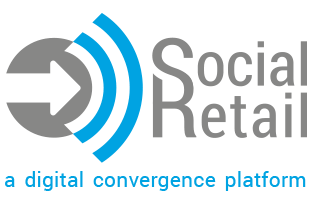
Industries like retail that have jumped head first into adopting beacons, and the new technology have already delivered in a big way. According to data collected by Business Insider, beacon technology is expected to influence over $4 billion worth of US retail in 2015, and that number only accounts for the top 0.1 percent of businesses.
The research data also suggested that the influence of beacons on retail sales is expected to increase by tenfold in 2016. If the retail industry has had such immediate success with beacon technology, it stands to reason that other sectors could likewise benefit from all the perks that beacons have to offer. Local tourism boards and municipalities are in an especially advantageous position to adopt beacons because travelers now guide themselves with their smartphones now more than ever. The following scenarios provide insight into just how useful beacons can be in terms of helping visitors get the most from their vacation.
1. Versatile beacon apps are ideal for streamlining navigation
The most promising beacon benefit for tourism boards is the ability to share pieces of information directly with visitors via their smartphone apps. This relatively simple technology offers near unlimited potential with regard to enhancing the visitor experience. For example, Fast Company noted that app-guided walking tours have sprung up in major cities around the world.
These digital attractions do more than turn smartphones into proximity-sensitive info placards. Custom apps can work in synch with other on-board resources, such as the device's GPS and map service, to provide travelers with a comprehensive tour guide that fits into the palm of their hands. By making it easier for visitors to get the most out of their experience, cities and municipalities can begin to draw more visitors via word of mouth. After all, who wouldn't want to discover (or rediscover) America's most storied cities with the help of a convenient custom app.
2. Beacon-based tours allow local businesses to create new attractions
Those who attend the annual BeaconCrawl in New York City bars enjoy an unforgettable night out on the town, prompted and guided by proximity notifications from one hotspot to another.
"Beacons can help ensure that tourism revenues benefit the community."
All types of local businesses can combine their branding power behind a similar app and beacon strategy to attract new customers. This beacon-assisted cooperation can be used to guide customers from one local shop to another and ensure that revenue streams are flowing back into surrounding communities. Furthermore, supplementary tools like Digital Social Retail's robust Ad Server make it easy to share information about local businesses with nearby tourists.
3. Proximity notifications help tourists track down the city's overlooked gems
In several major tourist destinations, such as London, beacons are already being used or piloted for the purpose of attracting a steady stream of visitors. According to Mobile Commerce News, members of the London Assembly are championing the use of beacons to draw new attention to old attractions. Additionally, the devices can be used to direct returning travelers to tucked away restaurants and shows they may have missed during previous visits. These use cases reflect that the value of beacons isn't limited to new solutions for attracting additional customers. These cost-effective devices can encourage seasoned travelers to make return trips as well.
The main lesson for tourism boards to take away from these examples is how seamlessly beacon technology can direct travelers to unique points of interest that reflect the best of what the city has to offer. In this way beacons and the right software can be used to take to visitor experiences to the next level.






![Consumer data confirms that retail customers are ready for beacons [Video]](../wp-content/uploads/bfi_thumb/14120865-mid2w2ky2qui61w2h61e0f2v8jb82pc1o37ff6nt8i.jpg)
